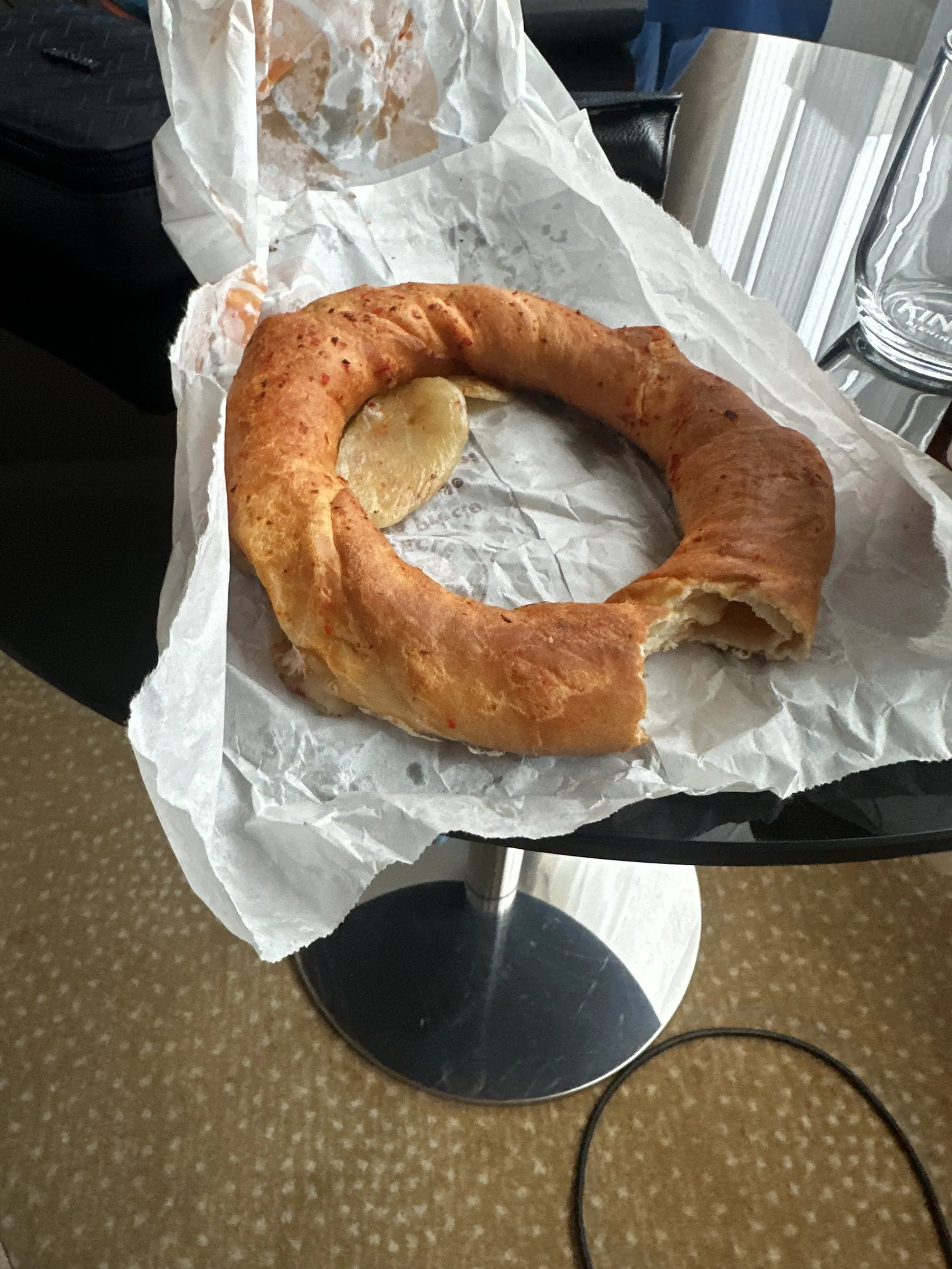Bagels and Pretzels: A Taste of Warsaw’s Streets
Some of the best food memories don’t come from fancy restaurants. They come from the street—simple, portable, and tied to everyday life. In Warsaw, one of those foods is the humble obwarzanek, a chewy ring of bread that sits somewhere between a bagel and a pretzel.
A Bite of History
Bagels are said to have originated in Poland, long before they became a brunch staple in New York. The first written mention dates back to Kraków in the 1600s, where bakers made ring-shaped bread for special occasions. Jewish communities carried the tradition forward, and the bagel eventually traveled across the Atlantic with immigrants.
In Warsaw today, you’ll still find vendors selling obwarzanki from small carts on busy corners. Twisted or round, sprinkled with sesame or poppy seeds, they’re not flashy—but they’re tied to centuries of daily eating in this city.
The Street Food Experience
You’ll spot them hanging in neat rows, stacked on wooden dowels, ready to be taken on the go. They’re cheap, filling, and easy to carry—a perfect travel snack.
The texture falls somewhere between soft bread and chewy pretzel. Fresh ones are best, still warm, with the seeds giving just a little crunch. For locals, it’s a quick bite on the way to school or work. For us, it felt like a link between Warsaw’s present and its layered past.
Where to Find Them
Street carts around Old Town and along Krakowskie Przedmieście often sell them in the mornings and early afternoons.
Local markets sometimes have vendors offering obwarzanki alongside other baked goods.
For a sit-down version, some modern bakeries in Warsaw reinterpret the classic bagel, filling them with cream cheese, salmon, or local twists.
Eating an obwarzanek in Warsaw isn’t just about the taste—it’s about connection. It ties you to Jewish heritage, Polish baking traditions, and the rhythms of everyday life in the city. My favorites were those stuffed with cheese and spicy red pepper — that with a Polish beer — was an amazing lunch that cost <$5!

